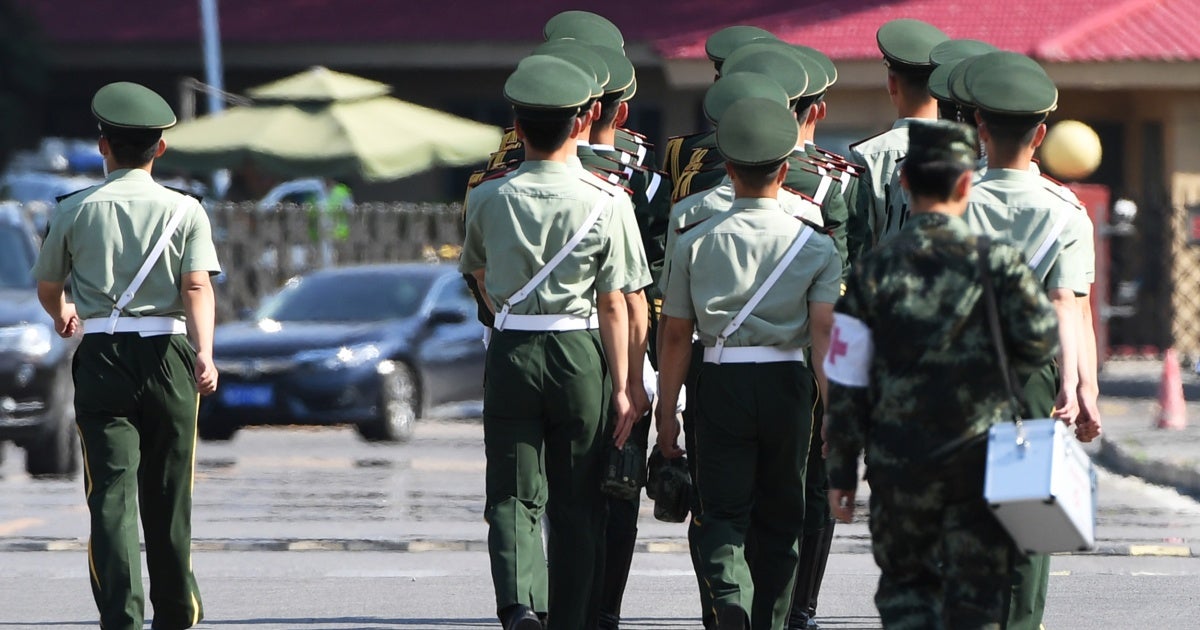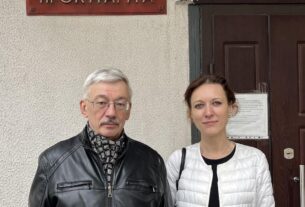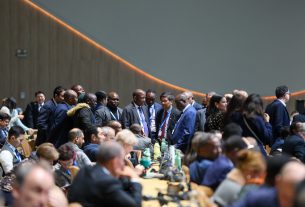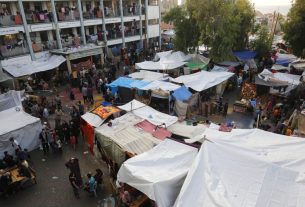(Seoul) – Chinese authorities since 2024 have forcibly returned at least 406 people to North Korea, where they are at grave risk of persecution and ill-treatment, Human Rights Watch said today.
The Chinese government’s forced return of North Koreans puts them at high risk of torture, wrongful imprisonment, sexual violence, forced labor, and possible execution, in violation of international human rights law. Chinese officials responsible for unlawful deportations face potential criminal liability for facilitating crimes under North Korean leader Kim Jong Un’s totalitarian rule.
“Chinese authorities are sending hundreds of North Koreans back to a place where they know returnees will be severely persecuted,” said Lina Yoon, senior Koreas researcher at Human Rights Watch. “Beijing should immediately allow the United Nations Refugee Agency access to all those at risk of forced return to North Korea and publish data on all North Koreans detained or deported.”
The 406 cases are based on information from Stephen Kim, the pseudonym of a person with extensive contacts in North Korea and China. Human Rights Watch has long found his network’s reports on forced repatriation to be credible. The new figure brings the total number of forcible returns since 2020 to at least 1,076. No official data is available.
A 2014 United Nations Commission of Inquiry report on human rights in North Korea found that forcibly returned North Koreans are systematically subjected to acts amounting to crimes against humanity, including torture, sexual violence, forced labor, enforced disappearances, and inhumane detention conditions. The commission warned that China’s cooperation in identifying and repatriating North Korean escapees may constitute complicity in these crimes.
Subsequent communications by UN human rights experts have reiterated concerns about forced returns. The UN Human Rights Office found in a September 2025 report that “throughout the past decade, repatriated individuals were subjected to serious human rights violations, including arbitrary detention, torture, ill-treatment, enforced disappearance and sexual and gender-based violence,” and called on countries to “respect the principle of non-refoulement [not returning someone to a place where they will be mistreated] and consistently refrain from carrying out forcible repatriations in the light of the real risk of serious human rights violations.”
In November 2024, several UN human rights experts wrote to the governments of North Korea and China expressing concern about reporting that in August 2024 North Korea had executed two women who were among those returned in October 2023 and inquired about others who remained forcibly disappeared. Neither country has reportedly replied.
In its July 2023 submission to the UN Human Rights Council for China’s Universal Periodic Review, the UN Refugee Agency urged China to recognize that some North Koreans need international protection due to the severe treatment faced by returnees, and to ensure that they have access to asylum procedures and documentation allowing legal residence.
Human Rights Watch verified many of the cases of forced returns since 2024. Unless noted, there is no information available on their current whereabouts or condition.
They include 108 North Korean overseas workers who were returned in January 2024 from Helong city in China’s Jilin province, after a protest over unpaid wages reportedly turned violent, to be sent to political prisons upon return to North Korea.
Another 60 North Koreans from Jilin and Liaoning provinces were returned in April 2024; and 212 trafficked North Korean women who had been detained in Kunming city in Yunnan province, Nanning city in Guangxi province, and Pinxiang city in Jiangxi province were returned during 2024. A 36-year-old overseas worker was returned in early 2025, who was working as a computer hacker and had been detained in early 2024 for trying to escape; and five women who had been living in forced marriages in Jilin and Heilongjiang provinces were returned in mid-2025.
Chinese authorities also forcibly returned 20 of 22 women detained in Inner Mongolia between December 2024 and July 2025. The two not forcibly returned had been trafficked into forced marriages in China and were pregnant, and were sent to the homes of the Chinese men they had been sold to.
Women who become pregnant under coercive conditions by Chinese men face particularly harsh treatment upon return to North Korea, three former North Korean government officials told Human Rights Watch. The 2014 Commission of Inquiry report found that North Korean authorities routinely subjected these women to forced abortion and infanticide, as the North Korean government considers mixed-ethnicity children a threat to the “purity” of the Korean people.
In addition to those returned, more than 100 North Korean women were being held in detention centers in China’s southern provinces as of July. They had been trafficked into forced marriages and had children, and were trying to reach a safe third country. The authorities planned to return them to the homes of the men they had been sold to ahead of North Korean leader Kim Jong Un’s scheduled trip to Beijing in September. Human Rights Watch has learned that at least 28 of these women were sent back to the men in China.
The Chinese government has continued to label undocumented North Koreans as illegal “economic migrants” and forcibly returned them based on a 1986 border protocol. Growing repression under Chinese President Xi Jinping, including expanded mass surveillance, has further enabled systematic identification and forced repatriation of North Koreans.
Beijing has rejected international calls to end this practice. During its 2024 Universal Periodic Review at the UN Human Rights Council, China explicitly rejected recommendations to refrain from forcibly repatriating North Koreans.
China, as a state party to the 1951 Refugee Convention and its 1967 Protocol, as well as the 1984 Convention Against Torture, is legally obligated not to forcibly return anyone to a country where they face a real risk of persecution or torture. This prohibition, called nonrefoulement, is also binding on China as a matter of customary international law.
In 2010, North Korea’s Ministry of People’s Security adopted a decree making defection a crime of “treachery against the nation,” punishable by death. North Koreans who left their country without authorization and who face forced repatriation are refugees sur place, people who become refugees by the act of leaving their country without permission regardless of their reasons for leaving or prior persecution.
The Chinese government should immediately stop forced returns of North Koreans, provide asylum to North Korean refugees and allow them to fully integrate in China should they want to, or permit them to seek resettlement in a third country or safely pass through Chinese territory to third countries. Governments and donors should increase support for organizations assisting escapees, especially those providing gender-sensitive protection for women and children at risk of trafficking or repatriation.
“The Chinese government should stop forcibly returning North Koreans and instead call for Pyongyang to end the oppressive conditions that are compelling people to flee North Korea,” Yoon said. “Governments should press North Korea to let people leave freely and they should provide sustained support for the organizations protecting North Korean escapees.”



